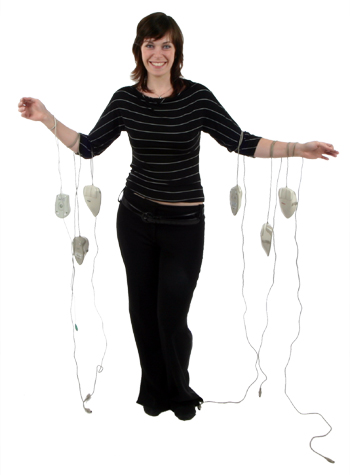
Workstation Sense: what you need to know.
60% of your staff could be working more productively.
A major research survey established that 6 out of every 10 people can benefit from making adjustments to their computer. We are used to adjusting things to suit us, and computers should be no different. It's just that most people don't think of adjusting their PC, when it's often simple and easy to do. Computer users are short and tall, wear glasses, have had previous injuries, cope differently with the pressure of deadlines and stress and in an average office.
- 10% will be left handed.
- 15% won't be able to read a 10 point font without straining their eyes.
- 10% + will have dyslexia.
So no adjustments lead to time-off, time-out, less ability to cope with stress: a lack of productivity that's bound to affect the profit margin.
It's the law!
You need to comply. The relevant legislation is The Health and Safety (Display Screen Equipment) Regulations 1992 (amended 2002) designed to protect the health of regular computer users.
Fail to take action and you could find yourself in court with an employee compensation claim. More importantly it makes total business sense to think about workstation set up for an immediate improvement in morale and work capacity. It's simply good business sense.
Sustained poor posture at a workstation is a key factor in exacerbating any existing health problems. The main risks identified in the Regulations are musculoskeletal (such as back, neck, wrist pain), visual fatigue and mental stress. These are directly related to the frequency, duration, intensity and length of continuous use of DSE. (Apologies now for the one abbreviation in this CD: DSE is used throughout for Display Screen Equipment).
This CD is all you need. What's more it's designed to be straightforward to follow and jargon-free. Offer it to your staff and they can also help themselves, learn short-cuts and improve their computer use.
What next!
Contact AbilityNet for free, impartial and expert advice if you need to take action or wish to find out appropriate suppliers. Most of the adaptive technologies illustrated here are low cost, and there is a legal duty of care on employers to supply them.
If you would like to talk to someone in person, you can contact us on our UK National Freephone Helpline: 0800 269 545.
Or why not email us on
Enquiries@AbilityNet.org.uk.
![]()
The pages on this CD have been designed to meet the W3C guidelines on accessibility, to priority level 3.
W3C Validator and our own accessibility testing techniques have been used.